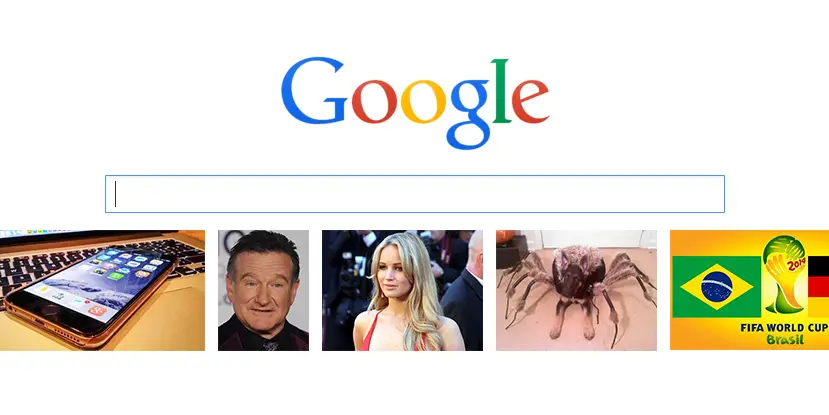One of the reasons I quit watching the local nightly news was the TV version of clickbait. Seemed most evenings there were only one or two newsworthy stories, but those were constantly teased going into commercial breaks (“Coming Up: Is Your Bathroom Slowly Killing You?”) and not shown until the very last 30 seconds of the newscast, thus getting you to watch the whole half hour. Usually it ended up as “No, your bathroom isn’t killing you yet, but we’d keep an eye on your kitchen.”
I make it a point to avoid Internet clickbait as well (“YOU’LL NEVER BELIEVE WHAT THIS PERSON DID!! THE RESULTS WILL SHOCK YOU!!”). I quit underestimating humanity a long time ago, so the chances are I’ll probably believe what that person did, and no, the results usually aren’t shocking. Humanity, after all.
I say all that in light of the story showing up that Google, once again, is being accused of skewing search results to favor its own services. In the immortal words of Captain Louis Renault, “I’m shocked, shocked to find out that gambling is going on here.” What gets me is some of the headlines: “Google Harming Consumers, Strangling the Open Web!!!” “Your search results might kill you!!”
I exaggerate slightly, but then again, I’m a writer on the Internet, so apparently it is allowed. It should shock no one that Google would skew their search results. A recent study, which should be noted was paid for by Google’s search rivals, suggested that Google sometimes alters search results to play up their own services. According to the New York Times:
In the study, researchers from Harvard and Columbia presented 2,690 web users with two versions of Google. One version showed search results for local businesses as users usually see them, with links to the businesses along with ratings as posted to a Google site. The other version showed links to businesses along with ratings from rival sites like Yelp, the online review website, which paid for the study. The people studied were 45 percent more likely to click on links if Yelp and other competitors were included — a sign, researchers say, that users prefer more diverse search results.
Now before I get accused of being a Google fanboi (which I’m not) and downplaying this, (yes, it’s wrong), if Google is going to lead you to think they are serving up all information for you, then they need to. But I have to say, if you really need to research something and you are relying on only one service for all your info, you’re probably selling yourself short. There are plenty of search engines available. While I rely on Google services for my calendar, contacts, and personal GMail, I tend to use more than one search engine when really researching something important.
So to me, the moral of the story is, yes, you can’t trust Google all of the time. But is it something worth generating fake Internet outrage over? I think not. There are more important things to channel your weekly social media outrage into. So take some personal responsibility on the web.
But then again, it is the Internet; it might be slowly killing you.
Do you use more than one search engine? What are some of your favorites? Let us know in the comments or on our social media links.
[button link=”http://www.nytimes.com/2015/06/30/business/study-suggests-that-google-has-its-thumb-on-scale-in-search.html” icon=”fa-external-link” side=”left” target=”blank” color=”285b5e” textcolor=”ffffff”]Source: NY Times[/button][button link=”http://www.theregister.co.uk/2015/06/29/google_harms_consumers_and_is_strangling_the_open_web_study/” icon=”fa-external-link” side=”left” target=”blank” color=”285b5e” textcolor=”ffffff”]Source: The Register[/button]Last Updated on November 27, 2018.










